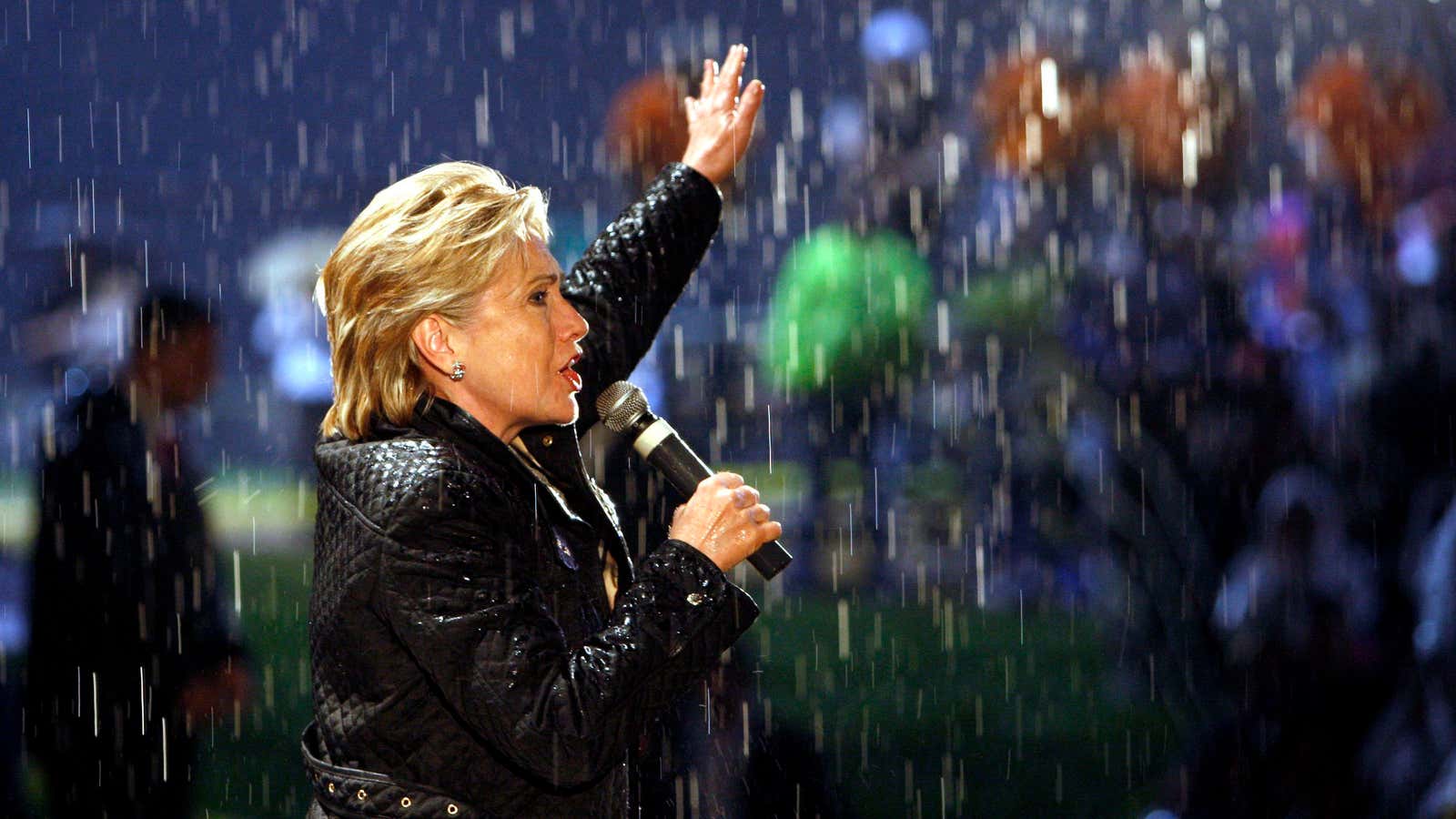In a January poll, US voters told the Pew Research Center that the environment, as an issue, was number 13 on their priority list. The top five? Terrorism, the economy, jobs, education, and social security—in other words, guns, and also butter.
But climate change will still matter in the US presidential election next year, and in the party primaries now lurching toward full speed. It won’t influence how voters vote, but the issue is part of both political parties’ signaling narrative—the messages they use to motivate their base voters and raise money from key interest groups and allies.
While scientific consensus on the threat of global warming has only hardened since the last presidential election in 2008, the politics of it have become more polarized. In the wake of the Bush administration, some Republicans saw the advantage in acknowledging climate change, including former House speaker Newt Gingrich. The party’s eventual nominee, John McCain, delivered a speech on the topic after he solidified his hold on the nomination:
Whether we call it “climate change” or “global warming,” in the end we’re all left with the same set of facts. The facts of global warming demand our urgent attention, especially in Washington. Good stewardship, prudence, and simple commonsense demand that we to act meet the challenge, and act quickly.
That same set of facts was apparently not passed on to the current crop of expected Republican candidates, including Ted Cruz, who formally entered the race yesterday. Where McCain cited NASA data as evidence of global warming, Cruz, the lawmaker who oversees the space agency’s budget, is trying to cancel the programs that collected the data.
His competitors aren’t that different: Last summer Grist, which writes a lot about climate, looked at the climate-change positions of potential Republican candidates and found two—governors Chris Christie of New Jersey and John Kasich of Ohio—who acknowledge the existence of climate change but think nothing should be done about it. The rest either disbelieve the science or refused to answer the question. Update: One prospective long-shot who wasn’t on Grist’s list, South Carolina Senator Lindsey Graham, backs government action on climate change.
For the Democrats, traditionally the party supported by environmentalists, climate change remains something of a no-brainer. The party’s leading candidate in the polls, Hillary Clinton, has long recognized the threat and supported market-based measures, like carbon trading, to address it. The issue remains a potent one for Democratic donors: The single largest individual donor in last year’s congressional elections was Tom Steyer, a hedge-fund billionaire who spent $74 million on candidates who agree with him on environmental issues.
On the other side of the aisle, fighting climate change regulation is a key point for the largest Republican donors, the Koch brothers, who inherited their father’s oil business and built it into a major conglomerate. Their organization spent $100 million on last year’s races, and no doubt will prove a powerful ally to the Republican nominee.
But most of all, climate change will be used to signal a narrative to voters. For Democrats, it will serve to remind liberal voters of the party’s belief in Enlightenment values and scientific research. Republicans, on the other hand, will use climate change to paint a picture of an out-of-touch government imposing its will on others. No doubt the playbook devised (paywall) by Senate majority leader Mitch McConnell to fight Obama administration regulations that would shutter the oldest and dirtiest coal plants will be a centerpiece of many campaigns. Rand Paul, another likely Republican candidate, has already attacked Clinton for saying that climate change is a threat to the US.
Could that backfire? Probably not in the primaries. A recent poll reports (paywall) that 71% of Americans believe climate change will personally hurt them, and 51% of Republicans think the government should be doing more to combat it. But only 18% of Republicans say that the issue is important to them, compared to 40% of Independents and 63% of Democrats.
Come the election itself, given those polling numbers, the Democratic nominee may try to play up the issue while the Republican contender may try to play it down. But ultimately, most voters will make their choice for president based not on where a candidate stands on climate change per se, but how that stance attracts campaign funding and signals his or her partisan values.
